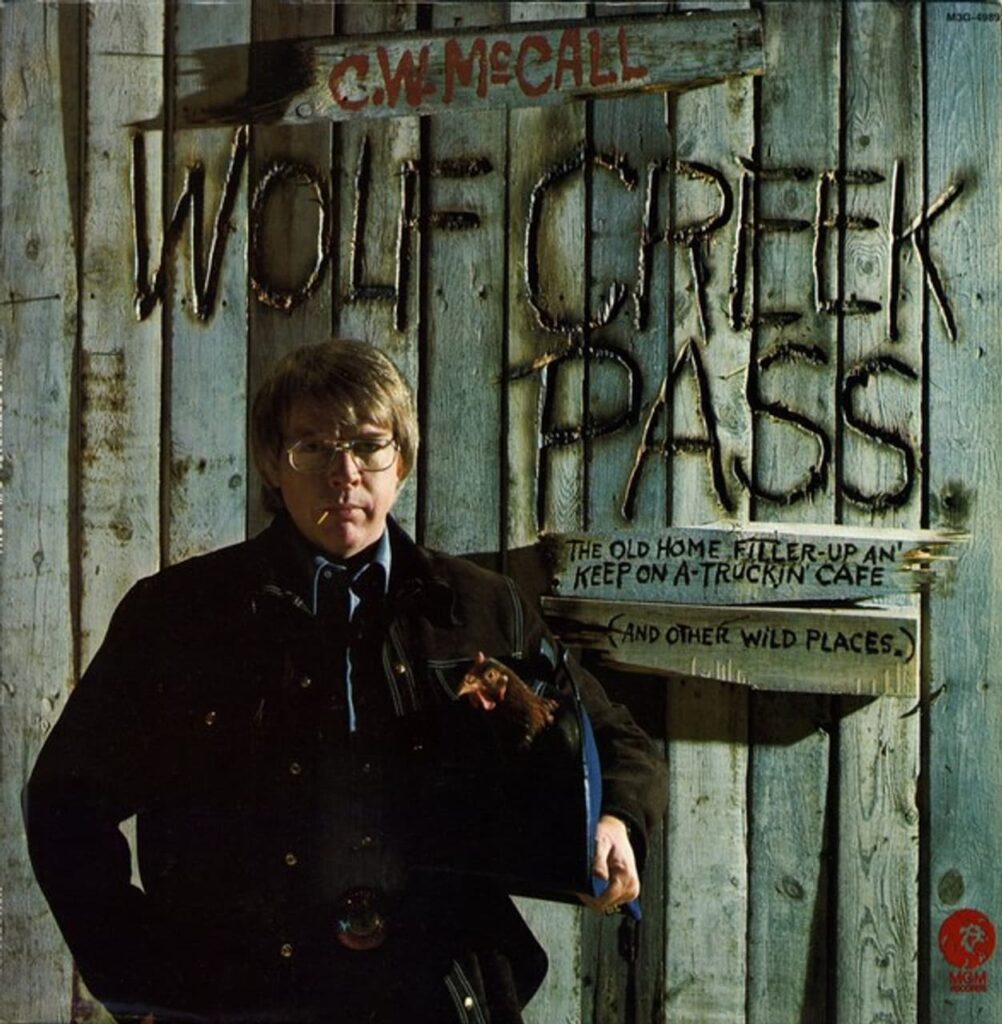
Wolf Creek Pass: A White-Knuckle Ride Through Mountain Peril
There are some songs that don’t just tell a story; they throw you right into the thick of it, seat-of-your-pants and heart-pounding. For anyone who’s ever driven a long stretch of highway, or simply enjoyed a good yarn, C.W. McCall’s “Wolf Creek Pass” is one such unforgettable experience. This iconic trucking song, a true staple of the CB radio era, transports you to the treacherous Rocky Mountains, detailing a harrowing journey down a dangerous stretch of road. Released in 1974 as a single from his debut album, also titled Wolf Creek Pass, this narrative gem became a significant hit. It climbed to No. 12 on the Billboard Hot Country Singles chart and even crossed over to the pop charts, reaching No. 40 on the Billboard Hot 100 in 1975, proving that its appeal stretched far beyond the trucking community.
The genius behind C.W. McCall was actually William Dale Fries Jr., an advertising executive who, alongside composer Chip Davis (later of Mannheim Steamroller fame), created the character of C.W. McCall for a series of popular commercials for Old Home Bread. These ads, filled with folksy charm and truck stop adventures, were so beloved that they spawned a recording career. “Wolf Creek Pass” itself sprung from Fries’s imagination, fueled by tales of the real Colorado mountain pass, a notoriously steep and winding section of U.S. Highway 160 on the Continental Divide. It’s a road legendary among truckers for its challenging grades and sharp turns, a place where a driver’s skill and luck are truly put to the test. Fries, a master storyteller, vividly captured the essence of this perilous journey, turning it into a gripping, almost cinematic, spoken-word country song.
The meaning of “Wolf Creek Pass” goes beyond a mere recounting of a truck driver’s nightmare. It’s a thrilling ode to the sheer grit and resilience of the American truck driver, a high-stakes adventure where man battles machine and nature. The song captures the anxiety, the desperate attempts to regain control, and the dark humor that can emerge even in the face of impending disaster. The protagonist, loaded with “thirty-some thousand pounds of livestock,” finds his brakes failing on the steep descent, leading to a frantic, runaway ride. It’s a metaphor, perhaps, for life itself sometimes feeling out of control, demanding quick thinking and a bit of divine intervention to make it through. For older listeners, particularly those who remember the golden age of trucking or simply the spirit of rugged individualism, the song resonates with a nostalgic appreciation for those who face down danger on the open road.
What truly sets “Wolf Creek Pass” apart is C.W. McCall’s unique delivery. He wasn’t a singer in the traditional sense, but a storyteller par excellence, his voice a folksy, conversational baritone that drew you into the narrative as if he were recounting the tale over a cup of coffee at a roadside diner. His spoken-word style, punctuated by sound effects and a driving, almost cinematic musical accompaniment by Chip Davis, creates an immersive experience. You can almost feel the truck shaking, hear the tires squealing, and smell the burning brakes. The instrumentation is sparse but effective, building tension and then releasing it with the triumphant, if slightly chaotic, ending. It’s the kind of song that, once heard, is hard to forget, its vivid imagery and thrilling narrative sticking with you long after the final notes fade.
“Wolf Creek Pass” is more than just a novelty hit; it’s a testament to the power of a well-told story and the enduring fascination with the trucking life. It captures a specific moment in American culture when the open road, the CB radio, and the larger-than-life characters who traversed the highways held a special place in the public imagination. For those of us who lived through that era, or simply appreciate a good, old-fashioned adventure, this song remains a thrilling reminder of a time when a runaway truck down a perilous mountain pass could become a nationwide sensation, thanks to the storytelling prowess of C.W. McCall. It’s a true classic, a roaring tale that continues to thrill and entertain, much like the winding roads it so vividly describes.